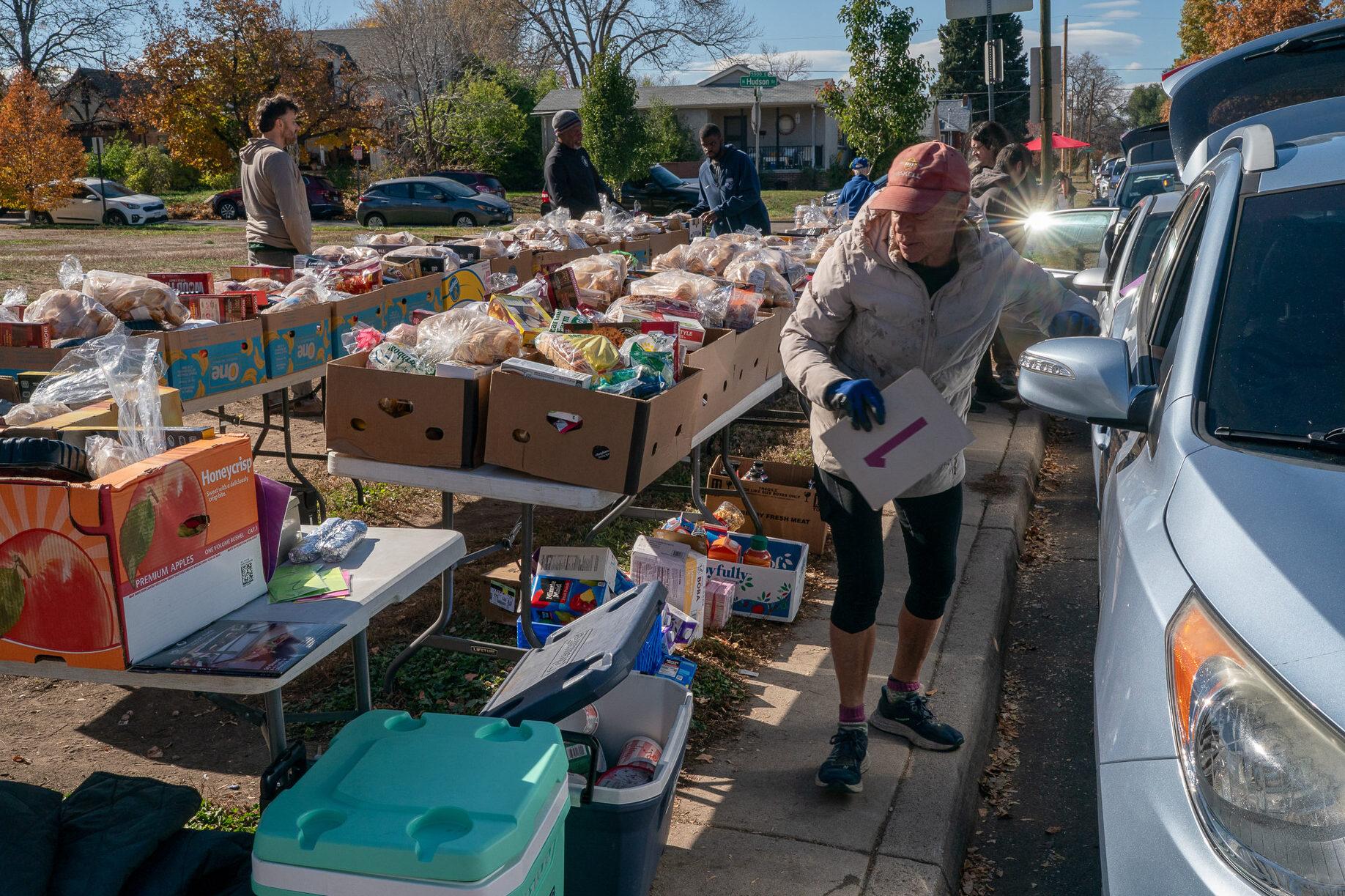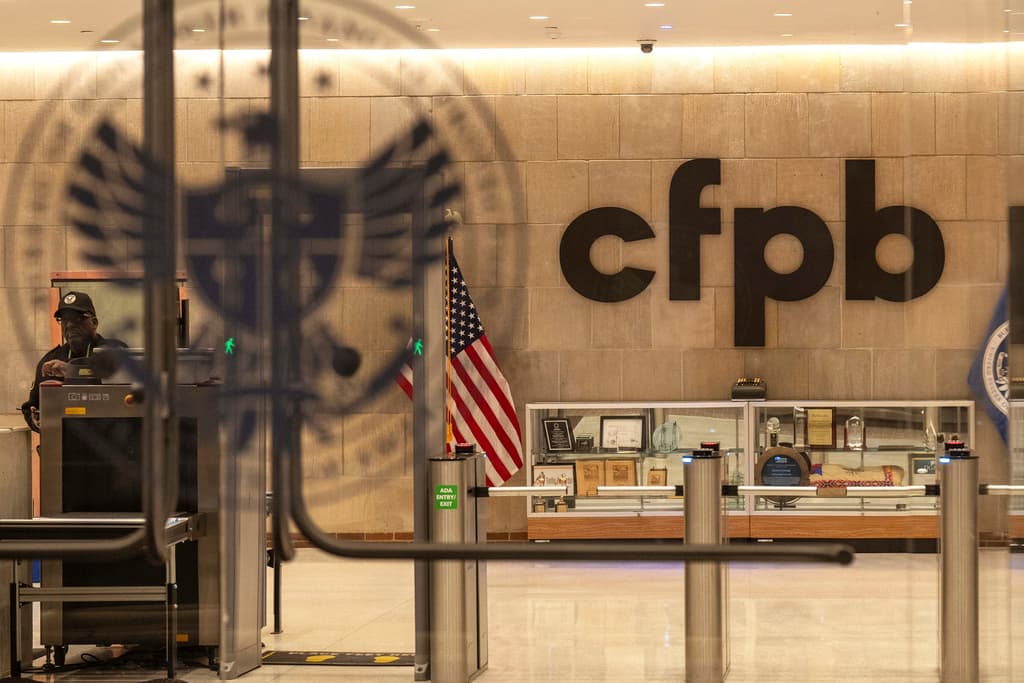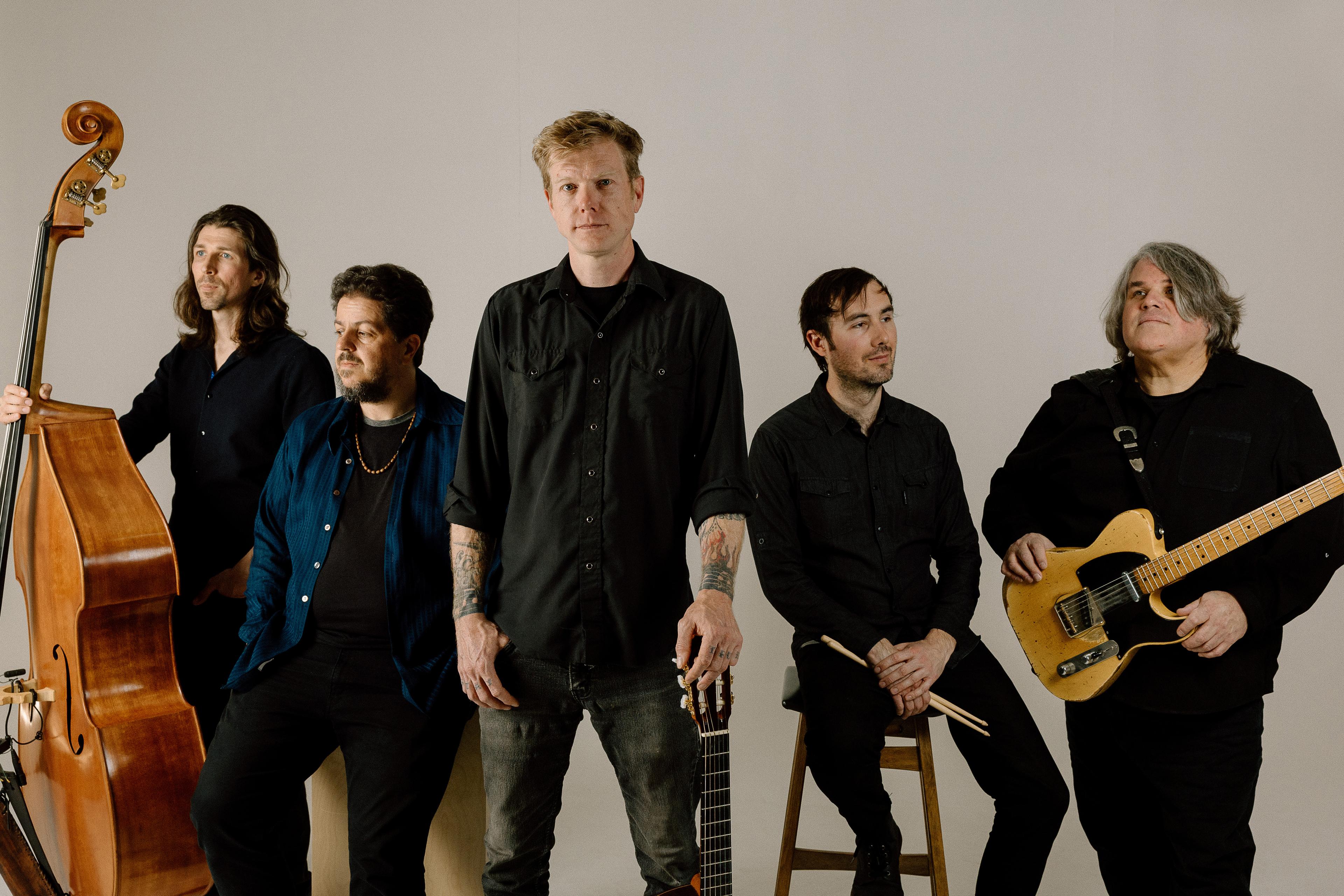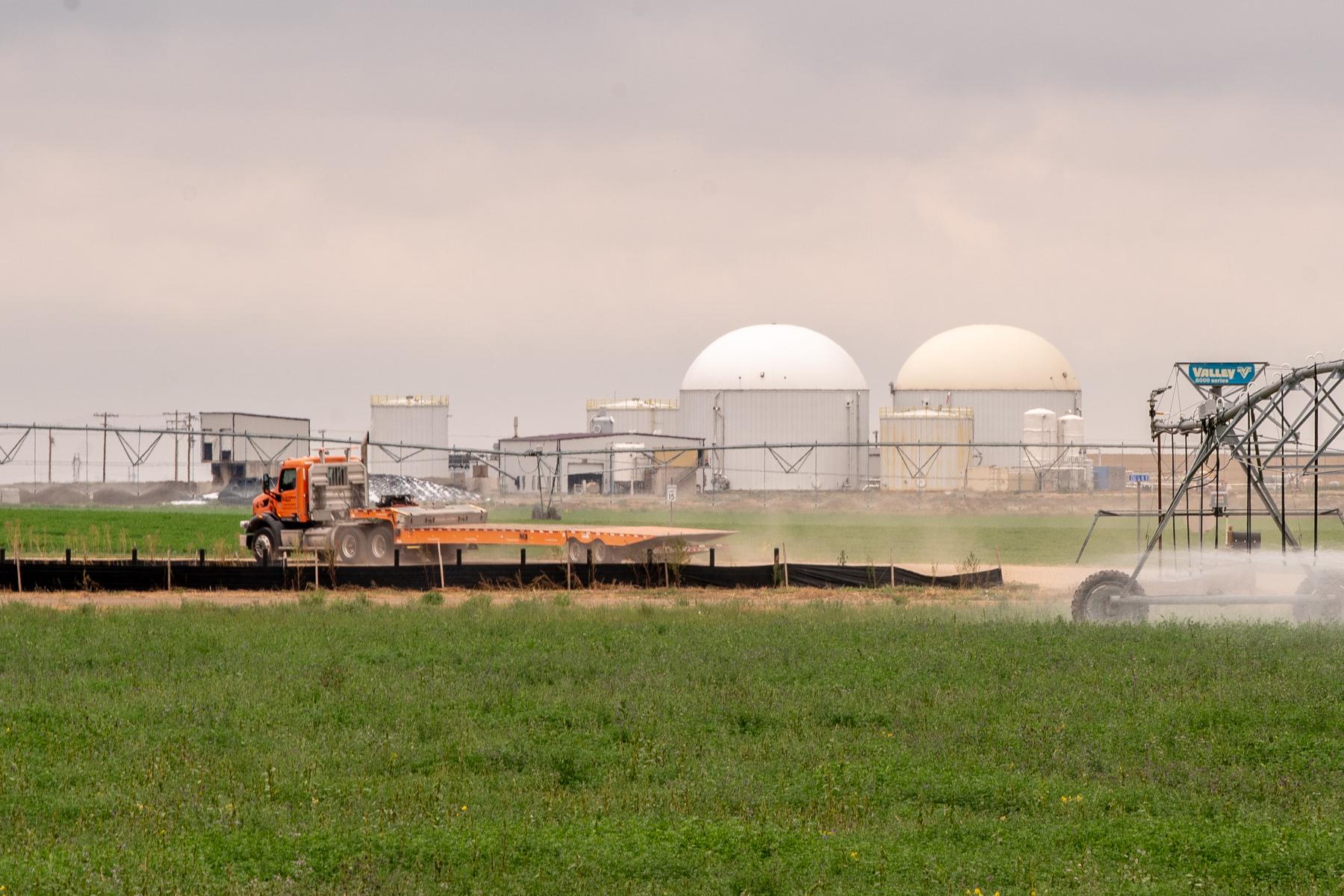
Hillary Clinton's national campaign manager, Robby Mook, is visiting Colorado this week to open campaign field offices and meet with volunteers and donors.
Mook spoke with CPR's Andrea Dukakis about policy issues of concern in Colorado, including fracking and climate change, and about the campaign's strategy in the state.
Clinton has said she will oppose fracking where state and local governments are against it. Asked if the federal government should take a hand in regulating the practice, Mook said that under Clinton the federal government would set national standards to ensure health, safety and a clean environment but that details would have to be worked out between the levels of government.
As for political strategy, a poll released last week shows Clinton with a 14 percentage point lead over Trump. But Mook said the campaign continues to expand its field operations, especially to encourage voter registration and get-out-the-vote efforts in what will be an all mail-ballot election.
Mook, 36, is a Vermont native. He served as a state director during Clinton's 2008 presidential campaign, worked for the Democratic Congressional Campaign Committee during the 2012 elections and headed Virginian Gov. Terry McAuliffe's 2013 campaign. McAuliffe is a close adviser to Clinton.
Read A Transcript:
Andrea Dukakis: Hillary Clinton's national campaign manager, Robby Mook, is in Colorado this week to open new field offices for the campaign, raise money and meet with volunteers. We have standing invitations in to both Clinton and Donald Trump to appear on our show. In the meantime we asked Mook to join us to talk about Clinton's views on issues of particular concern to Coloradans. We'll also talk about the campaign strategy in the state. We should note, we're working to schedule someone from Trump's national campaign as well. Robby, welcome to the show. Robby Mook: Thank you so much Andrea. Dukakis: Let's start with fracking. It's been very controversial in Colorado and may be on the state ballot this fall. Secretary Clinton has said she's against it when any local or state government's against it. But some people believe fracking isn't just a state and local issue. And they say concerns about water and air pollution cross state boundaries. How, if at all, would Secretary Clinton step up federal involvement in this issue? Mook: Well as you pointed out, Andrea, she's coming to this with some broad principles, the first of which as you mentioned is that localities need to have the final say as to whether it can happen in their communities. And secondly that we need, we need national standards to ensure that health, safety and our environment are being protected. I'm not a constitutional expert and so there's a lot of issues that need to be worked out, vis-à-vis the federal government versus the state government. But I think what's really important in this election are those core principles and you're hearing something very different from Donald Trump. He hasn't, he's either been unclear or seems uninterested in these health, safety and environmental issues. Dukakis: So would Clinton be willing to get involved on a federal level if it were possible for her to do something? Mook: Well what she's talked about is the need for some sort of nationwide standard, again to protect health, safety and the environment. What they'll be, the framework for that would be, as I said, needs to be worked out and that's obviously particularly true here in Colorado but the principle's there that nowhere in this country should people's health be at risk because of this. Dukakis: Yeah and one of the recent roadblocks, a federal judge struck down some fracking regulations imposed by the Obama Administration. The judge said Congress had specifically excluded fracking from federal oversight in most cases. So the question is really is there anything Clinton can do federally without congressional approval. Mook: Well I think that's a matter for the courts to figure out. Obviously there's always a legislative option as well and I think all of that will have to be looked at. But I think it's important, you know campaigns are about the big ideas and the values that candidates are promoting and again this is a clear difference between her and Trump. She's been very clear that we have to protect health, safety and the communities need to have the final say. Dukakis: Let's move on to climate change. Clinton set three climate change goals she says will be met within ten years. She wants to generate enough renewable energy to power every home in the country. She wants to cut energy waste by a third and she wants to reduce oil consumption by a third. Those goals mean people in businesses will have to make some major changes. What's Clinton going to do specifically to make that happen? Mook: Well it's a great question. I think the, look the threshold issue here is whether there's a real commitment to actually getting something done. Donald Trump has called climate change a Chinese hoax. And so first and foremost, Hillary is completely committed to making progress on this issue. Secondly, this is not just a climate, environmental, health issue, it's an economic issue. Both because here in Colorado climate change could have a dramatically negative impact on agriculture, on tourism, ski industry and so on, but it's also an enormous opportunity and Colorado would be at the forefront of that too, to create a good paying, green job. The solution here is not just slapping a bunch of regulations on people. The solution here is investing in the technologies that can make this transition as efficient and as quick as possible. You know she's talked about installing hundreds of millions of solar panels in her first administration. That is part of the solution of making sure that homes are run on renewable energy. So it's an all of the above approach to this. It really starts with making an investment. Dukakis: Is it realistic to think every home could be powered by renewable energy in ten years? Mook: It is. It is. If we get those solar panels installed, if we make sure that homes are made much more energy efficient. The technology exists right now to help homeowners through technology and thermostat technology regulates their homes so that there's less waste. Also retrofitting homes to make sure that they're more energy efficient. All of this is possible but these are big ideas and big goals and they're not, just because they're possible doesn't mean that they're simple or they're quick. This is going to take a lot of work. But what's scary is how Donald Trump doesn't even accept the premise that global, that climate change is happening or that it's, let alone that it's a big problem. Dukakis: The Supreme Court recently put a hold on the administration's Clean Power Plan which cuts greenhouse gas emissions from power plants by a third. If the Clean Power Plan is blocked, what's Secretary Clinton's alternative for getting those emissions cut? Mook: This is a great question. Look I think what this goes back to and this is true for a lot of issues is that the next president is not just going to appoint the one Supreme Court vacancy we have right now. She, I would argue, is going to appoint two, three, possibly even four new justices and so we've got to have a president who believes that climate change is real and shares what I would argue are mainstream values here in Colorado and across the country. I think that ruling was very unfortunate. This carbon dioxide that is going into our atmosphere is a pollutant. It is changing our climate and it is a threat to our health and our economy and our future. So I think the Supreme Court is an important piece. And then look, the next president's got to start working with both parties and working across the aisle to get something real passed on this issue. And Hillary Clinton has a long record of working across the aisle to get things done. Dukakis: Is she willing to go around Congress with executive action as Obama's done during his Administration? Mook: I think that has to be on the table and that's been effective in some cases but as we've seen if the court is blocking you, we need to make sure we have a court that's going to be friendly and future looking. But look, the last thing I would just say is we think about working across party lines, working with the judiciary, if there's one person who will be divisive, even within his own party, it's Donald Trump. So I think it's just another reason why the stakes are really high in this election. Dukakis: Well let's move on to campaign strategy in Colorado. Your campaign hasn't bought ads in Colorado since late July and Clinton has a double-digit lead over Trump in the latest poll of Colorado voters, though it's obviously very early in the game. Do you think the state is now a likely win for Clinton? Mook: Well look, I do think she is going to win Colorado, I think she's going to win it because voters here reject the divisiveness of Donald Trump. Reject the threat that he would pose to our national security and our society. But that doesn't, that's very different than taking Colorado for granted or sinking it to the back. To the contrary, as you mentioned I've been here, we're opening new offices, I think we're up to 16 offices now across the state. The number of staff, the number of offices are going to grow because everybody is voting by mail this year and there are a lot of people who haven't registered to vote yet or who have moved in the last few years and need to re-register. So we're laser focused on that work. And we are on television here. I actually just in a bar yesterday and saw our ads on the Olympics. We've had a big Olympics buy and we've been on cable here in Colorado for the last few months and are going to continue that. So different pieces of the tactical plan will move and change at different times but we are all in to win here. And nobody should be complacent. We're going to have to work really hard to be successful here. Dukakis: Just one last question. One in eight eligible voters in Colorado is Hispanic and a lot of those are millenials. Turnout has historically been a challenge with both those groups. What are you doing specifically in Colorado to ensure turnout? Mook: Well a lot of this is hand to hand, door to door, person to person. That's why we have so many organizers on the ground here. I was just working with volunteers yesterday who are going out in person to register young people to vote. I was on the phone last night recruiting volunteers to come in and do that same work. So that's important but I think the other thing that is incumbent on us as a campaign is to get out and talk about these last few weeks of this election, is how much is at stake and particularly for young people. Particularly for young Hispanics. We can go in two very different directions this fall. We can build a country where we do bring people together, where we are stronger together. Or where Donald Trump divides us, talks about building a wall, talks about keeping people out of this country, discriminating on immigration based on people's national origin or their religion. That's not who we are as Americans. And young people are now, the millenials in particular are the biggest voting bloc in our country right now. This is their election to decide. We all have to step up. We all have a responsibility to turn out and that's what we're going to remind them every single day. Dukakis: Robby, thanks for being with us. Mook: Thank you so much for the opportunity. Dukakis: Robby Mook is Hillary Clinton's campaign manager. We're working with the Trump campaign to get a national representative from the Republican nominee on our program. |









